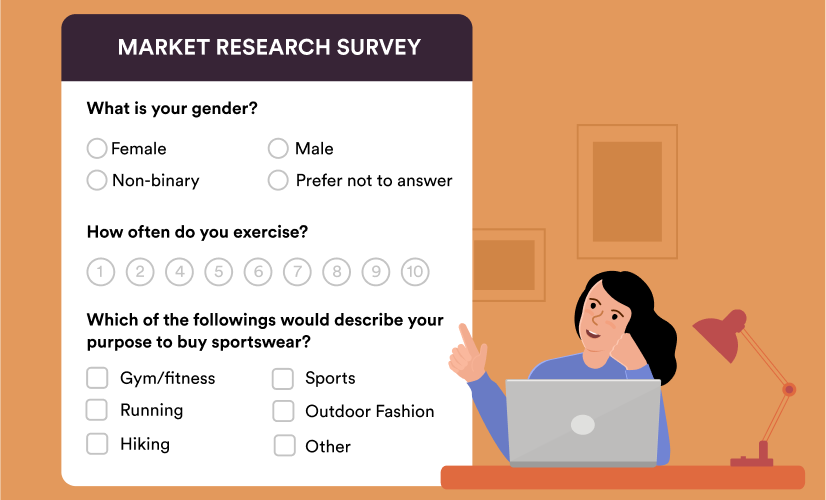Marketing research surveys play a pivotal role in understanding consumer behavior, preferences, and market trends. They provide businesses with valuable insights that aid in strategic decision-making, product development, and market positioning. In this article, we delve into the world of marketing research surveys, exploring their significance, key components, and best practices for conducting effective surveys that yield actionable results.
Unleashing the Power of Marketing Research Surveys

In today’s competitive business landscape, understanding consumer needs and preferences is vital for success. Marketing research surveys serve as a powerful tool for uncovering consumer insights and gaining a competitive edge. By collecting data directly from target audiences, businesses can make informed decisions and tailor their strategies to meet customer demands effectively.
The Importance of Market Research
Before diving into the intricacies of marketing research surveys, it is crucial to highlight the significance of market research. Market research provides businesses with a comprehensive understanding of their target market, competitors, and industry trends. It helps identify market opportunities, assess customer satisfaction, and gauge the effectiveness of marketing campaigns. By leveraging market research, businesses can minimize risks, maximize profitability, and establish a strong market presence.
Understanding Marketing Research Surveys
Marketing research surveys are structured questionnaires designed to gather specific information from a target audience. They aim to collect quantitative and qualitative data about consumer behavior, opinions, preferences, and attitudes. Surveys can be conducted through various channels, including online platforms, phone interviews, focus groups, or in-person interactions.
Key Components of Effective Marketing Research Surveys
To ensure the success of marketing research surveys, several essential components need careful consideration.
Target Audience Identification
Identifying the target audience is crucial for survey success. Defining the characteristics, demographics, and psychographics of the target market enables businesses to create surveys that resonate with their intended audience.
Survey Design and Question Types
Crafting a well-designed survey is fundamental to obtaining accurate and meaningful data. The survey should include a mix of closed-ended and open-ended questions to gather both quantitative and qualitative insights. Closed-ended questions offer predefined response options, while open-ended questions encourage participants to provide detailed responses.
Sample Size and Sampling Techniques
Determining the appropriate sample size and employing the right sampling techniques are critical for survey representativeness. Businesses must strike a balance between statistical significance and practicality when selecting the sample size. Additionally, employing random or stratified sampling methods enhances the survey’s validity and generalizability.
Data Collection Methods
The choice of data collection methods depends on various factors such as target audience preferences, accessibility, and budget constraints. Popular methods include online surveys, telephone interviews, focus groups, and face-to-face interactions. Selecting the most suitable data collection method ensures optimal response rates and data quality.
Data Analysis and Interpretation
Analyzing and interpreting survey data is a crucial step in extracting meaningful insights. Businesses can employ statistical techniques, such as regression analysis or correlation analysis, to identify patterns, trends, and relationships within the data. These insights provide actionable information for strategic decision-making.
Best Practices for Conducting Marketing Research Surveys
To ensure the effectiveness and reliability of marketing research surveys, it is essential to follow best practices throughout the survey process.
Clearly Define Research Objectives
Before initiating a survey, businesses should establish clear research objectives. Defining specific goals and research questions helps focus survey efforts and ensures that the data collected addresses the intended purpose.
Craft Well-Structured and Relevant Questions
Creating well-structured questions is essential for collecting accurate and valuable data. Questions should be concise, clear, and avoid any bias. Furthermore, the questions should align with the research objectives and elicit the desired information from respondents.
Consider Survey Length and Response Bias
Survey length plays a significant role in response rates and participant engagement. Keeping the survey concise and manageable increases the likelihood of completion. Additionally, minimizing response bias by avoiding leading questions or unintentional cues ensures unbiased and reliable data.
Utilize Multiple Data Collection Channels
Employing multiple data collection channels increases the reach and diversity of the survey sample. Leveraging online platforms, social media, email campaigns, and traditional methods broadens the pool of respondents and enhances the survey’s representativeness.
Ensure Data Accuracy and Reliability
Data accuracy and reliability are paramount in marketing research surveys. Implementing validation measures, performing data cleaning, and employing quality control techniques safeguard the integrity of the collected data. This ensures that the insights derived from the survey are robust and trustworthy.
Maintain Ethical Considerations
Businesses must adhere to ethical guidelines when conducting marketing research surveys. Respecting participants’ privacy, obtaining informed consent, and anonymizing data are crucial ethical considerations. Adhering to ethical practices fosters trust with participants and upholds the integrity of the research process.
Analyzing Survey Results and Extracting Insights

Once the data collection phase is complete, businesses must analyze the survey results to extract actionable insights. Data analysis involves organizing, cleaning, and interpreting the collected data. Employing statistical analysis techniques and data visualization tools aids in identifying trends, patterns, and correlations, providing valuable insights for decision-making.
Leveraging Survey Insights for Business Success
The insights gained from marketing research surveys serve as a strategic asset for businesses. By understanding customer preferences, pain points, and emerging trends, businesses can adapt their marketing strategies, refine product offerings, and enhance the overall customer experience. Leveraging survey insights enables businesses to stay ahead of the competition, retain customer loyalty, and drive sustainable growth.
Case Study: Enhancing Product Development and Market Positioning Through Marketing Research Surveys
One such company specializing in home appliances faced some challenges in maintaining awareness of the customer’s preference changes. With the increase in competition in the market, and the shifts in the customer’s preferences. The company notices changes in consumer expectations around product features, sustainability, and technological integration. To remain competitive and stay ahead in the market, they decided to depend on a market research survey. To know how the customers are thinking and how to improve their services to match their expectations.
Challenge
The company had conducted previous research in the market, but wasn’t providing the needed results and insights. As they didn’t provide the customer’s preferences in the features, or what they needed more from the products. Also, they didn’t know how the target customers see the brand compared to the competitors. With the increase in competition in the market, they realized that the need for structured market research is essential. They faced several challenges in the traditional research methods.
- Understanding customer preferences about the product’s different features.
- Positioning their products effectively in the market.
- Identifying emerging trends to align their products with the consumer’s expectations.
- Improving customer satisfaction with the products and their features.
Solution
To address these challenges, the company decided to conduct a comprehensive market research survey. Understanding the customers more deeply by gathering qualitative and quantitative data. To be able to have insights about the customer’s different behaviors and their expectations from the company. They followed some critical steps to ensure the effectiveness of the market research and the results.
- Target Audience Identification:
The first step was to define the target audience, which includes the current audience and potential buyers. The company segmented the audience according to its main characteristics.
- Demographics: including age, income level, and geographic location.
- Product Usage Patterns: define customers who have purchased the product from them before, or who have shown interest in the product.
- Psychographics: it included different values like sustainability, technology adoption, and lifestyle choices.
- Survey Design:
The survey design was an important element as it needed to contain both quantitative and qualitative questions. So some of the critical areas that the survey should cover were:
- Product Features: They needed to know the main features that consumers value the most in their products.
- Brand Perception: how the customers have perceived the company and its products compared to the competitors in the market.
- Price Sensitivity: knowing how much the customers would pay for more added features.
- Emerging Trends: What are the future features that the customers are expecting to get from the company and the products?
- Data Collection
The company chose the online survey to be able to reach as many customers.
- Incentivized Participation: They offered incentives for the customers to complete the survey.
- Multi-Channel Outreach: The survey was promoted across different channels, including social media, company websites, and emails. To ensure reaching all the customers.
- Segmented Sampling: Each segment of customers received a specific survey to ensure its suitability to them.
Conclusion
In conclusion, marketing research surveys are invaluable tools for businesses seeking to gain a competitive edge by understanding their target audience. By harnessing the power of consumer insights, businesses can make informed decisions, refine their strategies, and drive success in the marketplace.
If you’re ready to unlock the potential of marketing research surveys for your business, we invite you to request a demo from AIM Technologies. Our cutting-edge survey platform is designed to streamline the survey process, analyze data effectively, and extract actionable insights that propel your business forward.
FAQs
What is the primary purpose of marketing research surveys?
- Market research surveys aim to gather consumer insights and preferences to aid strategic decision-making and enhance business performance.
What are the different types of questions used in marketing research surveys?
- Market research surveys typically include closed-ended questions with predefined response options and open-ended questions that encourage detailed responses.
How can businesses ensure high response rates for their surveys?
- Keeping surveys concise, relevant, and accessible through multiple channels increases the likelihood of higher response rates.
What role does data analysis play in marketing research surveys?
- Data analysis allows businesses to identify patterns, trends, and relationships within the collected data, providing actionable insights for decision-making.
How can businesses apply survey insights to drive success?
- By leveraging survey insights, businesses can refine their marketing strategies, tailor their offerings to customer preferences, and improve overall customer satisfaction.




